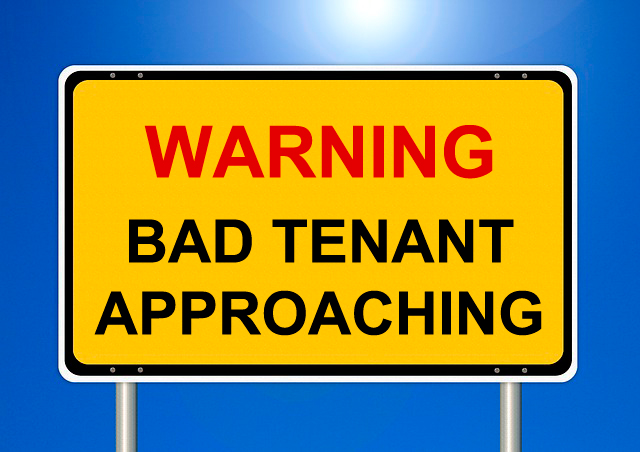
Becoming a landlord can be a lucrative proposition but it’s not always without its challenges.
With thorough vetting procedures in place, most tenancies will run smoothly and successfully. Some landlords, however, will no doubt experience a nightmare rental that leaves them with sleepless nights and costly outlays.
Here are 5 tips to help you deal with problem tenants:
Prevention rather than cure
Firstly, the best way to deal with problem tenants is to try to avoid having them in the first place. This will involve a thorough and professional approach to vetting your prospective tenants.
Make sure you get up-to-date, valid references for your potential renters. It’s normally advised that you get a reference from their place of work as well as from a past landlord.
Make sure you draw up a tenancy agreement that you’re both happy with, take at least one month’s rent as deposit and carry out a thorough inventory. If you’re a new landlord, remember that you can employ a lettings agency to sort all this out for you – although they will of course charge a fee.
Calm and professional
If your tenants are causing problems, it can be an extremely stressful situation. Even if their actions are distressing, it’s always best to keep a cool head and remain professional at all times. This should help avoid the problem escalating further.
Communicate clearly, politely and firmly with your tenants and explain fully why their behaviour is not appropriate. Remember that your tenancy agreement, which will have been signed by them, is a legal document that outlines the conduct and obligations that are expected from your tenant.
Keep records
Keep detailed records of all your communication with your tenants over the matter in question. Put any requests in writing and make sure you take copies. If the matter is not resolved and further action needs to be taken, these records will be evidence of your professionalism and attempts to resolve the problem quickly and agreeably.
Get covered
Make sure you have adequate landlord insurance in place before renting out your property. This type of cover is specially designed for the needs of rental properties. It could help you foot the bill if your tenants cause damage to the building or to any of the contents you have provided.
Sufficient insurance could also help cover the cost of lost rental payments due to the actions of your tenants. For example, if they refuse to pay their rent or the property becomes uninhabitable, landlord cover could prove vital. Many policies will also help you to meet legal expenses if they become necessary.
Know when to stop
Don’t let your frustration force you to overstep the mark. You don’t legally have the right to expel your tenants yourself, to change the property’s locks or physically remove your tenants or their possessions from the property.
If you have made several attempts to settle a dispute and it appears that eviction is the is the only solution, you could seek advice from the National Landlords Association.
They can offer guidance on the next steps to take.